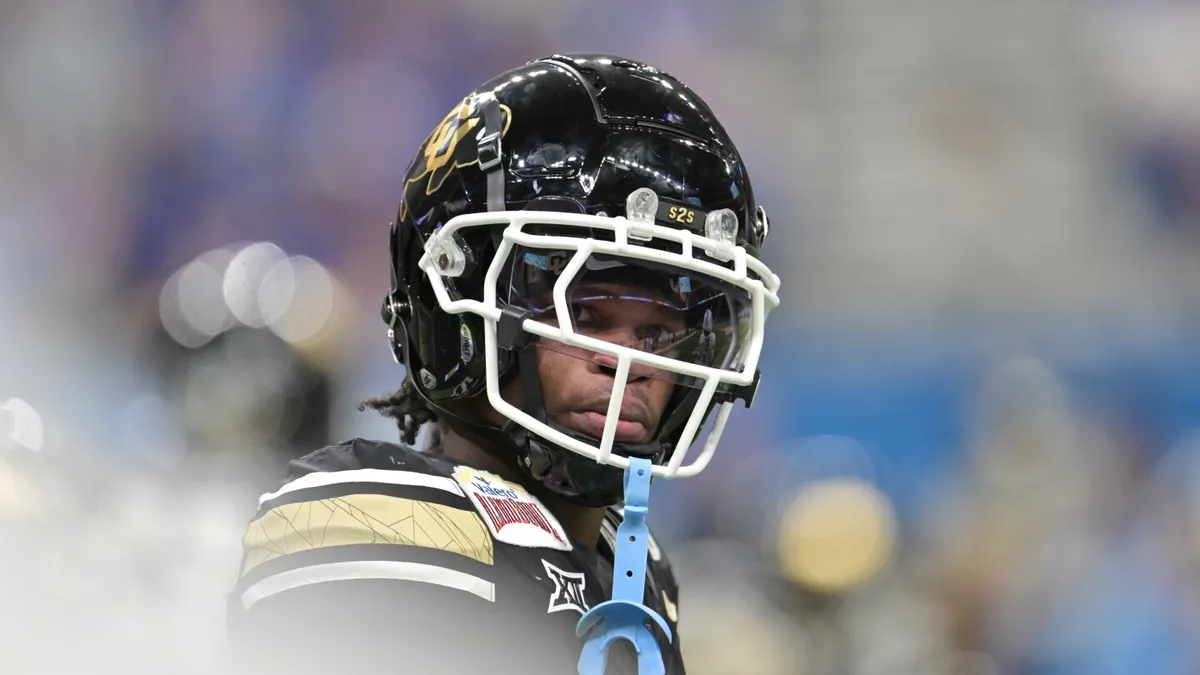
Travis Hunter, a standout athlete known for his remarkable versatility, is poised to make waves in the NFL. As he prepares for the upcoming draft, he understands that his future lies in the hands of the team's decision-makers. However, Hunter is not entirely at their mercy; he holds a significant amount of power regarding his role as the first true full-time two-way player in decades.
Hunter's recent comments reveal his strong commitment to playing both ways. He has made it clear that if the team that drafts him does not allow him to showcase his skills on both offense and defense, he would rather not play at all. “It’s never playing football again,” he stated in an interview with Garrett Podell of CBS Sports. “Because I’ve been doing it my whole life, and I love being on the football field." His passion for the game is evident, and he believes he can excel in both roles, expressing a desire to dominate as both a receiver and a cornerback.
At first glance, Hunter's comments may seem like idle threats. Why would a player jeopardize his NFL career over such a demand? The answer lies in the reality of the NFL draft system. Many players find themselves in challenging situations due to the team that selects them. The NFL draft is a spectacle that fans eagerly await, but it can also lead to a play-here-or-nowhere dilemma for players, binding them to a single franchise for up to five years—and potentially longer with franchise tags.
Hunter is aware of the significant impact that team fit can have on a player’s success. The careers of players like Geno Smith, Baker Mayfield, and Sam Darnold illustrate this point. Their struggles early in their careers often stemmed not from a lack of talent, but from being placed in unfavorable situations. Coaching, team dynamics, and management decisions all play critical roles in shaping a player's trajectory in the league.
Given his immense talent, Hunter holds leverage in this situation. If he genuinely intends to prioritize his dual-role aspirations, he should communicate this clearly to the teams drafting at the top. The message is simple: “If you’re not ready to let me play both ways, don’t take me. Trade the pick to someone who will.” Such a stance could shift the draft dynamics and prompt teams to reconsider their strategies.
For Hunter, it would be beneficial to assert his position before the draft rather than waiting until after he is selected. This proactive approach could prevent potential conflicts with the team that drafts him. While some fans and media may criticize such a move, it is ultimately his career at stake. If he is serious about his desire to play both positions, he must ensure that the teams considering him recognize his unique capabilities and aspirations.
As the draft approaches, Travis Hunter stands at a crucial juncture in his career. His exceptional talent as a two-way player could redefine expectations in the NFL, but only if he is given the opportunity to play the game he loves in a way that reflects his skills. The next few days will be pivotal as he navigates this landscape, ensuring that the teams interested in him are aligned with his vision for a dual-role career.